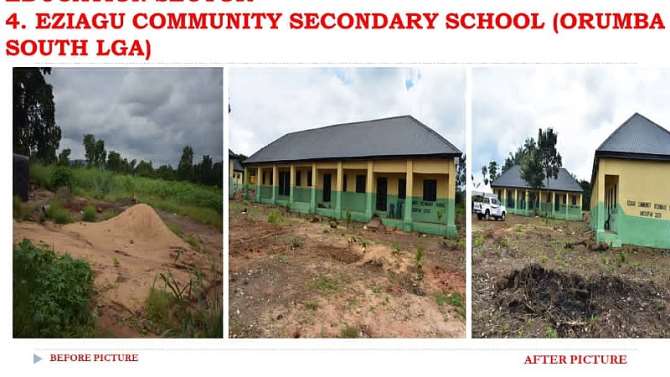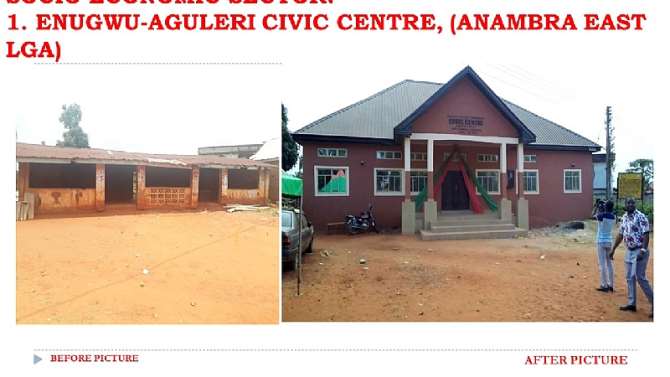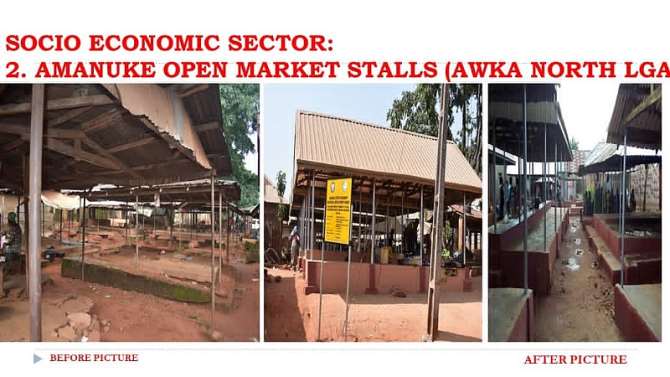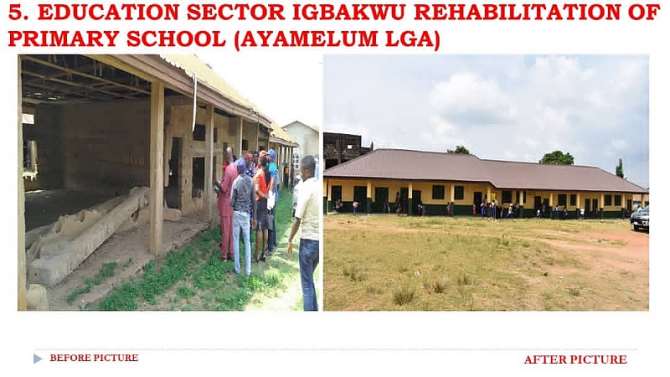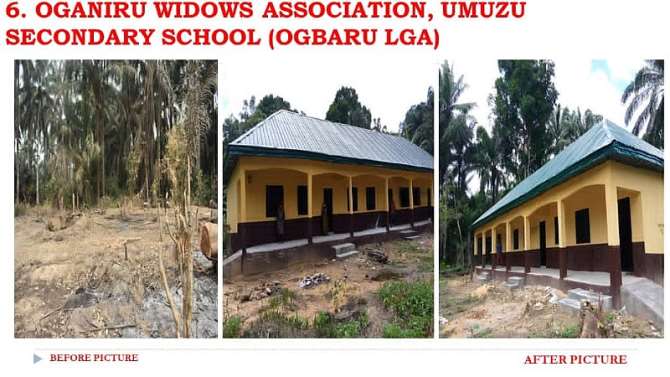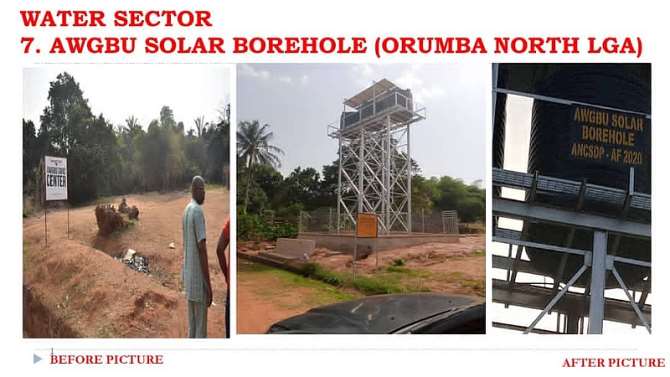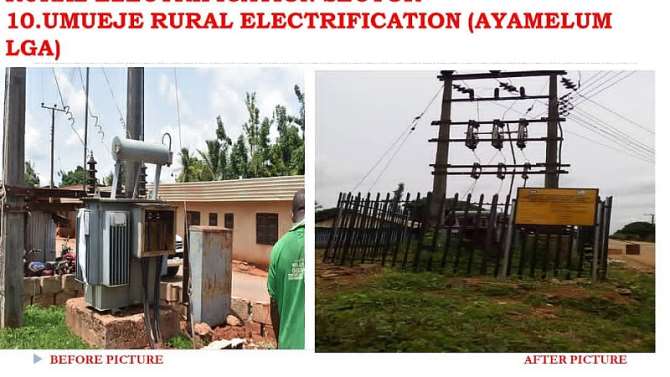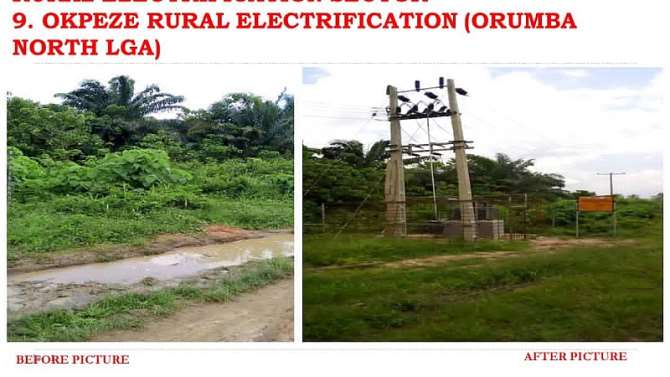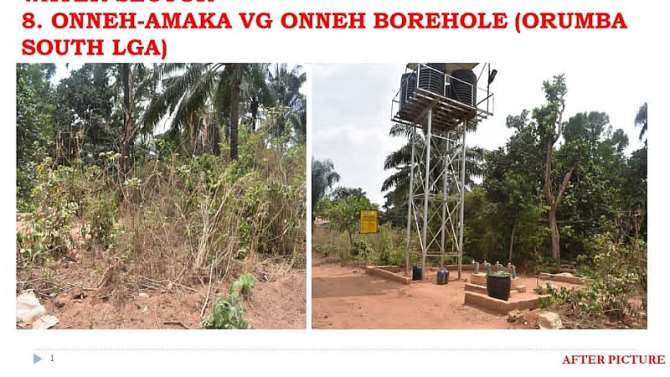7th Anniversary Of The Obiano Administration Day 19 Focus On Social Protection Sector: Anambra State Community And Social Development Agency (csda).
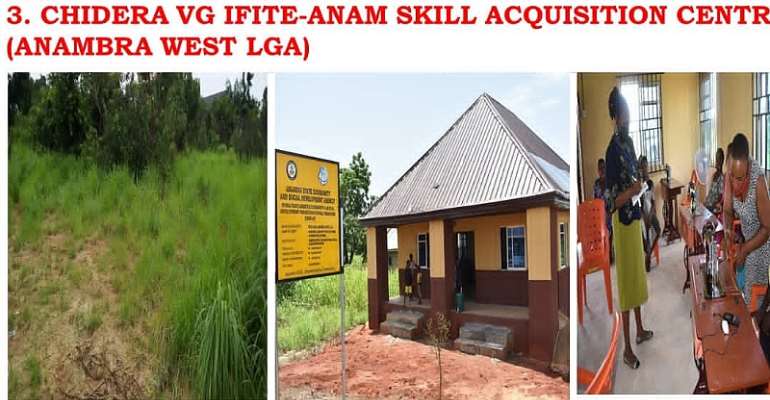
In a bid to provide access to improved economic and social infrastructure to select communities in hard to reach arears, the Governor of Anambra State resuscitated and strengthened the Anambra State Community and Social Development Agency (ANCSDA) which was established in 2009 by an Act of the Anambra State House of Assembly but could not take-off until August 1, 2018.
Modelled alongside the highly acclaimed the public infrastructure programme, Community Choose Your Project Initiative but with specific attention to communities identified under the State Poverty Mapping, the Obiano administration funded ANCSDA alongside the World Bank under the Assisted Community and Social Development Project - Additional Financing (CSDP-AF), to start community project implementation in March 2019.
To date, the footprints of the ANCSDA collaboration is dotted across twelve focal Local Government Areas. These include; Anambra East, Anambra-West, Ayamelum, Awka-North, Orumba-North, Orumba South, Ogbaru, Dunukofia, Ihiala, Idemmili-North, Oyi, and Anaocha LGAs.
Propelled by the project development objective (PDO) to increase access to improved social and natural resources infrastructure in a sustainable manner throughout Nigeria by the poor; ANCSDA adopted Community Driven Development (CDD), designed to empower the selected communities by giving them resources and authority to use them responsibly. The communities plan, part finance, implement, monitor and maintain sustainable and socially inclusive multi-sectoral micro projects.
The project areas in key sectors include; education, health, water resources, rural transportation, rural electrification, environment, socio-economic etc. Special efforts are also being made to mainstream gender and target vulnerable members of the rural communities in the project implementation.
To date , a total of 62 communities, 17 vulnerable groups and well over two million beneficiaries have been empowered with access to improved social and natural resource infrastructure. About 249 micro projects were supported with over a thousand temporal jobs, direct and indirect, created. Trainings were offered the youths in various skills acquisition like carpentry, tailoring, phone repairs, bead making, hair dressing, etc., with a proviso to step it down on return to their different communities.
Aside project implementation and pro-poor interventions, the agency approved fifty-eight Community Development Plans and seventeen Group Development Plans for adoption in the state integrated development plan. Other critical interventions by ANCSDA are in the area of social responsibility and psycho-social support to care-seekers and victims of various kinds of trauma, including gender-based violence, domestic violence, rape, sexual abuse, herdsmen attack among others by the agency's trained staff. The agency equally played pivotal role in sensitization of many communities on the observation Covid-19 protocols at the height of the pandemic.
The agency has within a short span achieved remarkable improvement in infrastructural development in the focal communities where its efforts were directed. The Amanuke Feeder Road and Culvert, the Ndiukwuenu Science Lab, Okpeze Rural Rlectrification, Ezi Anam VIP Toilet, Enugwu Aguleri Civic Centre, Nkpunando Health Centre, Umuzu Community Secondary School, Igbakwu Community Secondary School, Onneh Water Borehole, etc., were some of the projects implemented by the agency which will continue to speak to the hearts of the beneficiary communities.
Led by a management team and staff headed by a General Manager/CEO. Mr. Chudi Mojekwu and supervised by a Board of Directors, Chaired by HRH Igwe Rowland Odegbo, through the ANCSDA,
Anambra State is already consolidating and institutionalizing government community and social programmes and drastically reducing poverty of infrastructural development in most rural communities, especially those considered to be particularly in need. Without doubt the concept of comprehensive development as envisaged by the Obiano government is yielding desired results.

